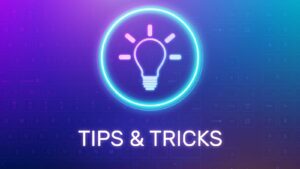Unlocking your potential as an auditory learner isn’t as daunting as it might seem. In fact, it’s all about understanding your strengths and leveraging them to your advantage. If you’ve ever found yourself remembering a conversation verbatim or picking up a language just by listening, you’re likely an auditory learner.
This article will delve into the world of auditory learning, offering practical tips and strategies to help you excel. Whether you’re a student seeking to improve your study habits or a professional aiming to enhance your skills, these insights will prove invaluable. Stay tuned to discover how to harness the power of your listening abilities to optimize your learning experience.
Auditory Learner Study Tips
Taking a deeper dive into the world of auditory learners, they demonstrate unique characteristics and face specific challenges in their learning journey.
Auditory learners shine in settings where listening and speaking play crucial roles. Their ears work as a powerful tool to absorb information, with distinctive traits that set them apart.
- Verbal Memory: Auditory learners retain verbal instructions effectively. For instance, they remember details from a lecture or a podcast.
- Music Pull: Auditory learners often relate to information better when it’s in a rhythmic or musical format. Singing a jingle to remember a phone number is an example.
- Talkative: These learners tend to verbalize thoughts to understand them better. It’s common to see auditory learners reading out loud or explaining concepts to others.
- Sound Sensitive: They’re usually more sensitive than others to sounds or noise in the environment.
Effective Auditory Learner Study Tips
In the myriad of study strategies, some cater specifically to auditory learners. Let’s uncover a few valuable tips designed to tap into the auditory learning style.
An effective tip for auditory learners centers on audio recordings. Auditory learners process information well when they listen back to lectures or notes. A history lesson, for example, can be grasped more easily if recorded and replayed. Rewriting notes while listening to such recordings can solidify understanding. In particular, hearing information in their own voice creates more connectivity in an auditory learner’s brain, enhancing retention. Therefore, recording learning materials on a digital device makes the study process vastly more effective for auditory learners.
Engaging in Group Discussions
Engaging in group discussions presents another beneficial strategy. Auditory learners thrive in interactive environments, specifically when verbalization comes into play. A chemistry discussion, for instance, helps auditory learners grasp complex concepts better. They hammer out ideas, ask questions, and share viewpoints, thus deepening their comprehension through dialogue. Active participation in group discussions can boost verbal memory, heightening the likelihood of information retention for auditory learners.
Tools and Resources for Auditory Learners
To further enhance the learning abilities of auditory learners, a selection of useful tools and resources can prove invaluable. Notably, these resources include educational and informative content presented in auditory formats, like podcasts and audiobooks, and the use of cutting-edge digital applications and websites.
Podcasts and audiobooks make the daily routine of auditory learners, both informative and entertaining. In the realm of podcasts, series such as “Stuff You Should Know” and “Radiolab” cover a broad spectrum of learning topics, creating engaging auditory educational experiences. Moreover, audiobooks offer the chance to absorb new information or literature while on-the-go. For instance, platforms such as “Audible” or “Librivox” cater to this medium, carrying a wealth of knowledge in various fields like history, science, literature, and more.
Helpful Apps and Websites
Digital applications and websites also play a critical role in the auditory learning process. Applications such as Focus@Will and Coffitivity embrace ambient noise and carefully curated music tracks to help auditory learners maintain focus and enhance their learning efficiency. Meanwhile, websites like Khan Academy or Coursera provide access to video-based lectures that auditory learners can vastly benefit from. By transforming text-heavy materials into engaging auditory content, these tools facilitate an inclusive learning environment for auditory individuals.




